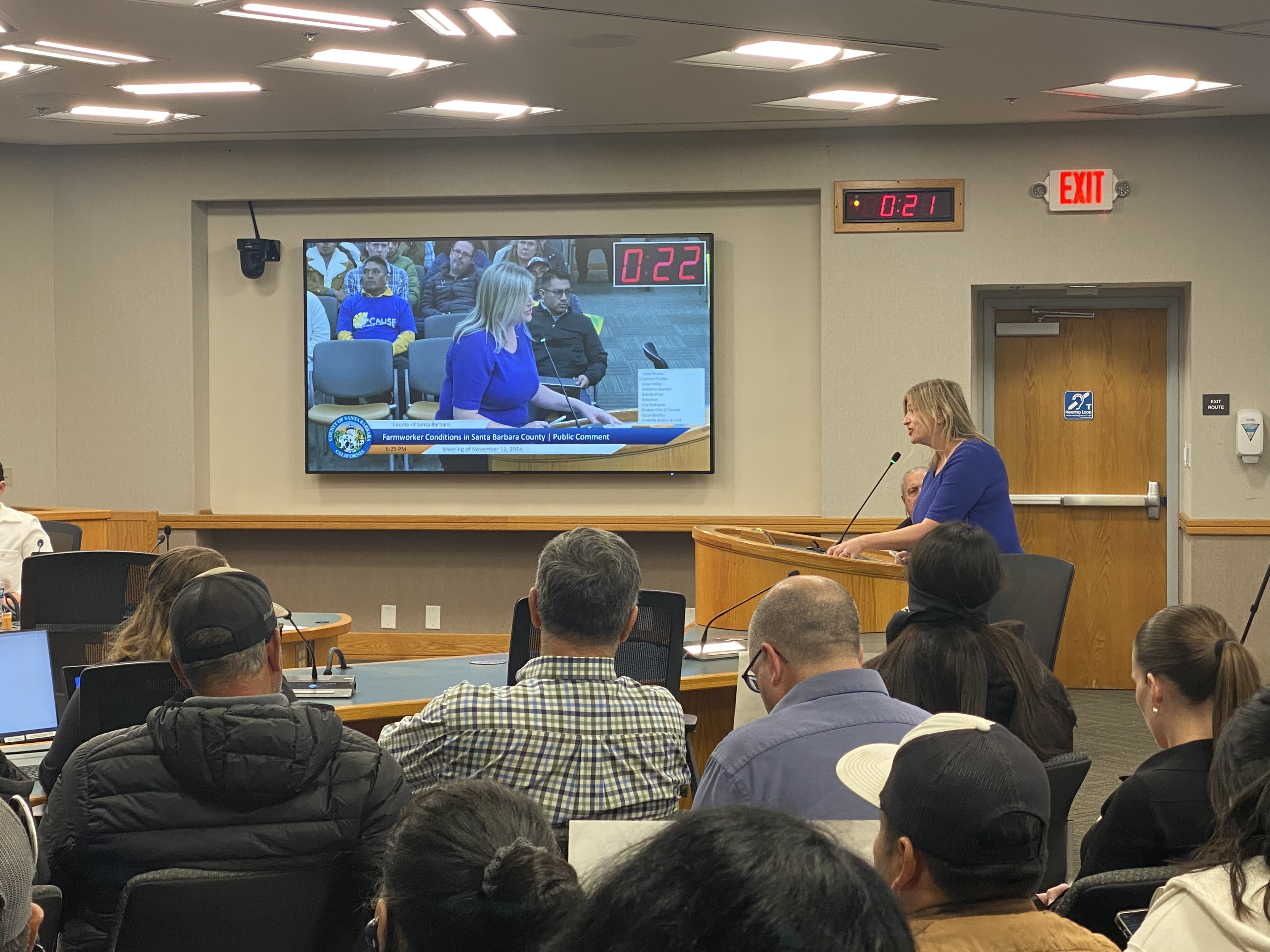
This past Tuesday, the Santa Barbara County Board of Supervisors’ held a Farmworker Conditions Community Meeting addressing growing concerns about the livelihoods of farmworkers and their families on the Central Coast in the face of growing costs of living.
Various community members spoke, including the UCSB Labor Community Center’s very own Executive Director, Carmen Rhodes. Read what she said below:
“Good afternoon Supervisors. My name is Carmen Rhodes. I am a resident of the City of Santa Barbara and the Executive Director of the newly formed UC Santa Barbara Community Labor Center.
I grew up in Colorado and first learned about California’s strawberry workers as a college student in Boulder in 1996. Fellow students drove all day and night in a crowded van to participate in a march in Watsonville with thousands of workers and allies to stand with the workers. As we’ve all heard from testimony today, not much has changed in almost 30 years.
I want to address questions that have arisen about unionization. Research shows that generally unionization allows low wage workers the opportunity for better wages and benefits through the collective bargaining process. And we have seen how increasing wages and unionization can work together to transform lower wage industries and workplaces and lift people out of poverty.
While CA farmworkers have the right to form unions, they face intense barriers to successfully do so. Farm work is inherently seasonal and since the 1980’s has shifted toward outsourcing to farm labor contractors. These structural challenges are coupled with many farmworkers being undocumented and fearing retaliation from their employers. You heard earlier that 8 in 10 farmworkers surveyed by UC Merced don’t know about a new law that allows for a simpler path to unionization. And while many hoped this new law would start to level the playing field for workers to form unions with less fear and intimidation, there is an active effort to challenge the validity of the law itself.
A survey of farmworkers from UC Merced reported that nearly 4 in 10 say they would not be willing to file a report if their employer had violated their rights. At the same time, more than 1 in 10 workers responded that they have been threatened to be fired or have their hours reduced if they asked about workplace safety conditions. This fear makes collective action toward improving working conditions and forming unions an impossible choice.
The farmworkers who do the essential work of bringing food to our tables deserve living wages. You have the power to raise their wages now and I hope you will look for ways to protect the rights of farmworkers to organize and continue improving wages and working conditions for the generations to come.”
To learn more about the meeting, read the Santa Barbara Independent story here.